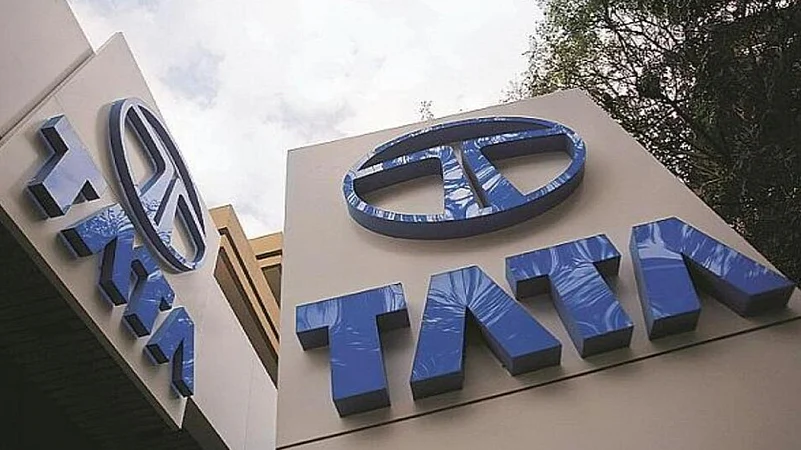The shareholder dispute involving Tata Sons has resurfaced with further attempts by the Shapoorji Pallonji Group to refinance its loans using its shares in Tata Sons as collateral. Expectedly, the Tata Trusts, being the majority shareholder of Tata Sons, have cited the restrictions on transfer of shares contained in the articles of association of the company to prevent a pledge of the shares.
The SP Group finds itself in a tight spot because Tata Sons was strategically converted from a public company to a private company in the wake of the leadership dispute that rose to a boiling point in 2016. More broadly, the illiquidity risk that minority investors experience in a private company sparks significant corporate governance concerns that bear no easy resolution.
Consistent with the requirements of the law governing private companies, the articles of association of Tata Sons contain restrictions on the transfer of shares. This offers a significant advantage to majority shareholders; for instance, the Tata Trusts hold nearly 66% shares in Tata Sons. By cobbling up support from other shareholders to reach a majority of 75%, they can determine the shape and structure of the transfer restrictions in the articles that bind minority shareholders; the SP Group holds only a tad over 18% in Tata Sons.
Moreover, where the articles stipulate that minority shareholders require the approval of the company’s board to create encumbrances, a majority-controlled board is unlikely to be swayed by the funding needs of the minority. This substantially limits the ability of minority investors in private companies to monetize their investments, a scenario that the SP Group has been experiencing since the privatization of Tata Sons.
At one level, curbing the ability of shareholders to liquidate their holdings in private companies is altogether understandable. A necessary precondition for an entity to take on the character of a private company is that its articles must restrict the right of shareholders to transfer their shares. The logic is that a private company constitutes a close relationship between a small group of individuals or entities who must work collaboratively.
In fact, corporate law even brands some private companies as “quasi partnerships” where shareholders repose mutual trust and confidence in each other, thereby suggesting the primacy of interpersonal relationships between the shareholders. The mandate of transfer restrictions in such companies would ensure that one or more shareholders do not break the ranks and divest their holdings in favour of buyers who may be incompatible with the other existing shareholders.
On the other hand, the need for shareholder solidarity in private companies limits the flexibility of shareholders, especially the minority, in collateralizing or liquidating their shareholding. Despite shares in private companies such as Tata Sons carrying significant value, minority shareholders such as the SP Group may find themselves in a position whereby they are unable to obtain financing on the strength of those crown jewels. The transfer restrictions in the articles of association effectively operate as a “contractual lock-in”.
In so far as private companies are concerned, courts in India have generally been content to preserve the sanctity of the contractual arrangements between shareholders in the articles of association and have refused to adopt an interventionist approach. This is evident from the 2021 ruling of the Supreme Court in the oppression and mismanagement action relating to Tata Sons itself.
The friction between the need for cohesion among shareholders of a private company, which is operationalized through transfer restrictions in the articles of association, and the minority shareholders’ inability to retain financial flexibility in leveraging off their holdings in a private company exacerbates the corporate governance conflict between controlling and minority shareholders. There is a growing chorus to expand the scope of regulation for private companies through enhanced corporate governance norms. The calls for regulation have grown louder for large public unlisted companies, especially as India is the third largest market in the world for Unicorns, which have exhibited their share of governance lapses.
At the same time, greater government regulation of private companies is arguably counterproductive and could stifle innovation. Instead, minority shareholders would be well advised to incorporate greater contractual protection in the articles of association that provides sufficient safety valves for fundraising using the company’s shares. A careful construction of the articles of association acquires even greater significance in private companies, and would help avoid imbalances among shareholders. Failing that, minority shareholders such as the SP Group in Tata Sons would be left with no exit options, either to use their shares as collateral or divest their shares, without being subject to pre-emptive provisions in the articles that limit liquidity.
Of course, the SP Group could seek judicial recourse by seeking to establish that the continued resistance by Tata Trusts towards the pledge of shares amounts to oppression and prejudice, but the bar to cross that is sky high, as the SP Group has already experienced before the Supreme Court. While regulation of private companies may not be desirable, softening the rigidity of the oppression regime under Indian corporate law would provide minority shareholders some form of legal succour. Failing that, minority shareholders may be caught between a rock and a hard place, a setting that the SP Group now finds itself in.
Umakanth Varottil is professor of law at the National University of Singapore. Views expressed are personal.






















